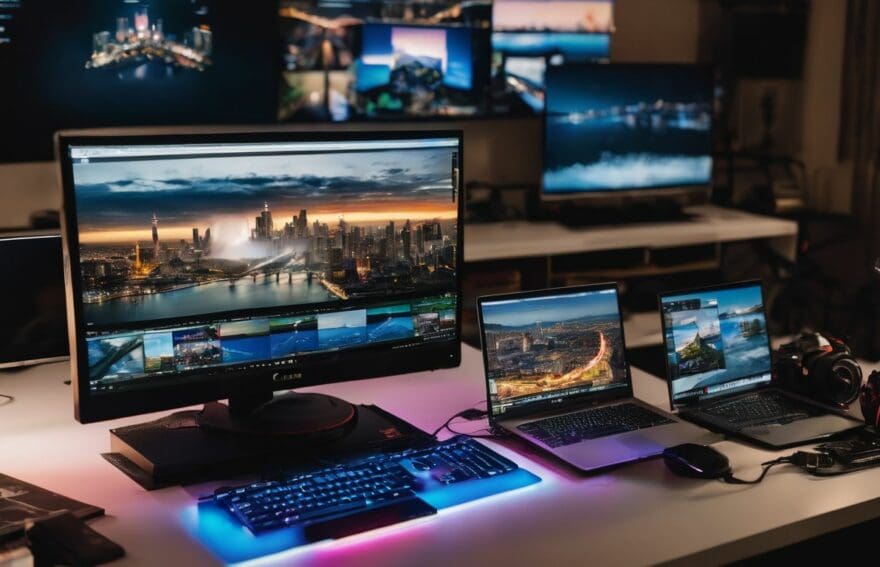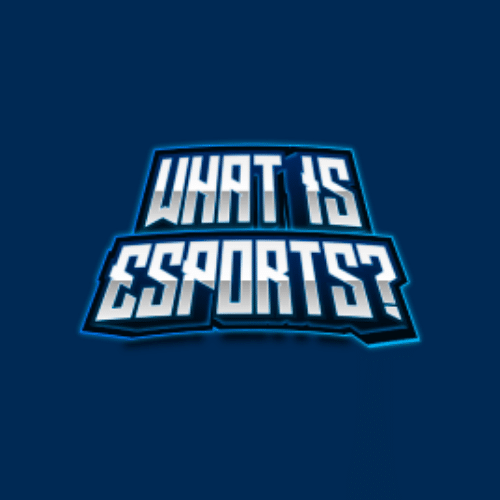Balancing Act: Esports and Academic Pursuits

Updated On: November 29, 2025 by 
Navigating the delicate dance between securing gaming triumphs and achieving academic excellence can indeed feel like a relentless quest. We understand the challenge all too well – balancing precise headshots with hitting the books is no small feat, more so when you consider that over 70 universities across the UK are now awarding esports scholarships.
Our blog offers a treasure trove of insights, designed to help you keep your grades soaring high without letting your leaderboards ranking slip through your fingers. Join us for some savvy advice that might just tip the scales in your favour!
Balancing Academics and Esports: The Dual Challenge
We understand the tough act of juggling academic work and esports. Many of us are in the same boat, striving to keep our grades up while aiming to excel at gaming competitions. It’s a tightrope walk where focus and discipline become your best allies.
Every day offers new challenges that test your resolve, from keeping on top of school assignments to putting in enough practice hours for the next big tournament.
You need robust strategies and a resilient mindset to tackle this dual challenge effectively. We find ourselves constantly adjusting our schedules, setting priorities straight, and ensuring we don’t fall behind in either area.
This balance isn’t about choosing one over the other; it’s about mastering time management so that education doesn’t suffer as a result of our commitment to esports or vice versa. Engaging in both pursuits can lead us towards greater opportunities, be it scholarships or opening doors within competitive gaming circuits.
So we dig deep, support each other and remember that achieving success requires hard work on all fronts without compromising on mental or physical health.
The Landscape of Collegiate Esports
Navigating through the landscape of collegiate esports unveils a thriving ecosystem that continues to gain momentum. Colleges and universities are increasingly recognising esports as a legitimate sporting activity, leading to the establishment of varsity teams and competitive leagues.
As institutions invest in gaming facilities and coaching staff, opportunities for student athletes have expanded significantly, offering scholarships and recognition akin to traditional sports.
The rise of high school esports leagues further solidifies the transition from casual gaming to organised competition at an academic level, fostering a healthy equilibrium between academic pursuits and gaming among students.
While balancing academics with collegiate esports remains challenging, the emergence of these ecosystems has kindled broader conversations about mental health support within competitive gaming environments.
This shift underscores the importance of prioritising physical well-being alongside educational pursuits – promoting an all-encompassing approach towards holistic development for student athletes.
Strategies for Balancing Time Between Academics and Esports
We will discuss setting priorities, using time management techniques, and building a support system to help you achieve a healthy balance between your academic commitments and esports.
Dive into our blog to discover effective strategies for managing both worlds!
Setting priorities
Setting priorities is essential when balancing academic responsibilities and gaming pursuits. By determining which tasks are the most important, we can allocate our time and energy effectively.
This involves evaluating deadlines, assessing the level of importance of each commitment, and making conscious decisions about how to distribute our efforts. Prioritising also allows us to maintain a healthy balance between esports and education by ensuring that crucial tasks are completed first, and then allocating time for gaming without compromising on academic responsibilities.
Strategic prioritisation enables us to stay organised, reduce stress levels, and ensure that both academic and gaming commitments receive the attention they deserve. It’s important to remember that setting priorities is an ongoing process that requires adaptability as our circumstances change.
Time management techniques
Balancing academics and esports requires effective time management techniques to excel in both areas. Here are some strategies to help you manage your time effectively:
- Create a timetable that allocates specific times for studying, gaming, and rest.
- Use productivity tools and apps to track your tasks and manage your time efficiently.
- Prioritise tasks based on deadlines and importance to ensure that both academic and gaming commitments are met.
- Break down large tasks into smaller, manageable chunks to make the most of your time.
- Learn to say no to distractions that can derail your focus during study or gaming sessions.
Building a support system
Finding a support system is crucial when balancing academic responsibilities and gaming commitments. Surrounding oneself with understanding friends, family, or teammates can provide the necessary encouragement and empathy to navigate the demands of both worlds.
Seeking out mentors, coaches, or academic advisors who understand the unique challenges of esports and education can also offer valuable guidance and support. In addition, joining communities or online forums dedicated to managing collegiate esports and academics provides a platform for sharing experiences and learning from others facing similar challenges.
Having a strong support system in place ensures that one does not have to face the pressures of academics and gaming alone. This network can offer emotional backing during tough times as well as practical advice on strategies for time management, mental wellness, and maintaining a healthy balance between educational pursuits and gaming commitments.
Achieving Success in Both Worlds
Scholarship opportunities and support systems can help aspiring gamers excel in both academics and esports, while prioritising physical and mental well-being is crucial for long-term success.
Navigating challenges and finding a healthy balance between the two worlds is essential for overall achievement.
Scholarships and opportunities
Achieving excellence in both academia and esports can open up opportunities for scholarships and career advancement. Students who excel in collegiate esports may be eligible for scholarships offered by universities seeking to bolster their competitive gaming teams.
Moreover, involvement in high school esports leagues can also pave the way for scholarship opportunities at the collegiate level, providing a pathway for gamers to further their education while pursuing their passion.
By excelling academically and athletically, individuals can position themselves for diverse educational and professional prospects, leveraging their skills in gaming to secure scholarships and access unique opportunities within the esports industry.
Navigating the demanding nature of collegiate esports requires dedication not only to gameplay but also to maintaining overall well-being. Organisations increasingly recognise the importance of supporting student-athletes’ physical and mental health, offering programmes designed to promote holistic wellness within the world of competitive gaming.
Well-being in the esports world
Prioritising physical and mental well-being is crucial for esports competitors. As gamers, we must recognise the significance of taking breaks, staying active, and maintaining a balanced lifestyle.
Engaging in regular physical activity not only enhances our performance but also contributes to improved overall health. It’s important to incorporate healthy habits into our daily routines, such as proper nutrition and sufficient sleep, to sustain both academic and gaming pursuits.
By nurturing a positive mindset and seeking support from friends and family, we can navigate the demands of esports and education while preserving our well-being.
Fostering positive relationships within the gaming community also plays a pivotal role in promoting mental wellness. Seeking out like-minded individuals who share similar ambitions can provide invaluable emotional support.
Navigating challenges
Balancing the demands of esports and academics presents its own set of challenges. We must confront issues such as time management, juggling obligations, and maintaining our overall well-being.
It’s crucial to recognise that these challenges are part of the journey and can be overcome with strategic planning, self-awareness, and seeking support from peers or mentors who understand the unique demands we face.
Additionally, participating in high school esports leagues can provide valuable experience in managing academic responsibilities alongside gaming commitments. By prioritising physical and mental health while striving for excellence in both arenas, we can forge a path towards achieving a healthy equilibrium between our educational pursuits and passion for gaming.
Looking Towards the Future: Trends and Potential Solutions
As the landscape of collegiate esports continues to evolve, it’s crucial for gamers to anticipate future trends and potential solutions. Embracing new technologies and innovations in gaming can offer exciting opportunities for academic integration and career prospects.
For instance, the rise of virtual reality in gaming opens doors for educational simulations and immersive learning experiences that could bridge the gap between gaming and academics.
Additionally, as esports gains recognition as a legitimate sporting activity, there is potential for increased collaboration with educational institutions to provide tailored support for student gamers.
Moreover, exploring strategies to prioritise mental well-being while engaging in competitive gaming could shape the future of balancing academic pursuits with esports involvement. By promoting mindfulness practices and offering resources for mental health support within the esports community, players can ensure a holistic approach to their personal development — thereby fostering a conducive environment for academic success alongside gaming commitments.
Furthermore, as we look ahead, it’s essential to maintain an awareness of emerging initiatives aimed at facilitating a harmonious relationship between academics and esports.
Conclusion
Achieving balance between esports and academic pursuits demands resilience and strategic planning. University students can navigate the dual challenge by prioritising time management and building a strong support system.
Embracing opportunities, fostering well-being, and staying adaptable are vital for success in both worlds. As the relationship between gaming and education evolves, finding a healthy equilibrium becomes an ongoing journey of self-awareness and adjustment.
Balancing esports and academics is not just about managing time efficiently but also nurturing physical and mental well-being for sustainable excellence in all areas of life.
FAQs
1. What is the balancing act between esports and academic pursuits?
The balancing act refers to finding harmony between gaming and learning, by managing collegiate esports commitments whilst maintaining strong academic performance.
2. Can playing esports affect my educational challenges?
Yes, juggling academic and gaming commitments requires time management strategies to ensure that your educational challenges are met without compromising either domain.
3. How do I manage my time as a college student involved in esports?
By prioritising tasks, setting clear goals for both your academics and athletic pursuits, you can adopt time management practices that help you navigate the demands of both worlds effectively.
4. Is it important to prioritise physical and mental health in esports?
Absolutely! Balancing academic and athletic pursuits means also taking care of your well-being through regular exercise, sufficient rest, and stress-management techniques.
5. Can students achieve a healthy equilibrium between academics and gaming?
Definitely! With effective strategies for balancing esports and academics, students can explore the relationship between gaming and education whilst achieving a healthy equilibrium.


